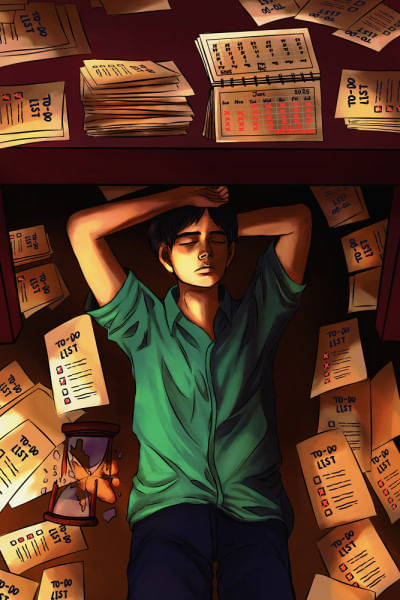The pitfalls of wanting to stay productive during semester breaks

As a university student, the world feels like it's getting more competitive with each passing day. It feels as if every unused or under-utilised moment is a missed opportunity to gain an edge on your academics or future professional life.
With the rise of so many different ways to stay productive, including, but not limited to, online courses, internships, part-time jobs, and personal projects, many university students are no longer just using their semester breaks to unwind. Instead, they are choosing to hustle through these breaks.
This productivity drive, for the most part, stems from both internal and external expectations in an achievement-oriented society.
During semester breaks, there isn't any coursework to worry about, but for many, that empty space quickly becomes a breeding ground for anxiety if it's not filled with something "productive". Scrolling through LinkedIn or hearing about a friend's achievement can further trigger an immediate sense of falling behind.
This pressure to constantly be working toward the next big milestone, even during traditional rest periods, indicates that university students, by and large, have become part of a culture that prioritises constant achievements over balanced lifestyles.
That being said, a semester break spent learning a new skill, honing existing ones, or completing internships or projects does offer benefits for future career prospects. For many students, these break periods provide opportunities to explore career interests without the competing demands of academic coursework. This exploration can play a role in making significant academic decisions, such as changing majors or choosing which minors to pursue.
In addition, for a lot of students, working during semester breaks provides financial support that they may have to depend on to fund their education. Beyond that, a purposeful approach to breaks that includes some planned activities can provide a healthy middle ground between the rigid scheduling of the semester and the complete absence of structure.
The real problem, however, arises when semester breaks become extensions of academic pressure rather than periods of rest and recovery. There is always the looming risk of extending and deepening the burnout already caused by the semester. After all, how fruitful would it be to start a new semester physically drained and mentally exhausted?
It is also important to consider the diminishing returns to continuous productivity. This is shown in a seven-year longitudinal study of summer programming, where students attending consecutive summer terms showed 19 percent lower GPA gains in subsequent academic years compared to peers who balanced work and rest. This shows that an excessive focus on remaining productive during semester breaks can actually backfire.
For students, it is important to find the right balance, like setting intentional but limited goals, managing expectations and setting boundaries, and breaking down goals into small, attainable chunks. This approach helps maintain a sense of purpose during breaks and protects against the exhaustion that comes with overcommitment.
Rest does not have to be at odds with productivity, and when we start looking at rest itself as a productive activity, things start making a bit more sense.
Reference:
RAND Summer Learning Series (July 2023). A Longitudinal Analysis of Outcomes from the National Summer Learning Project.
Bipra Prasun Das studies Computer Science and Engineering at North South University.

 For all latest news, follow The Daily Star's Google News channel.
For all latest news, follow The Daily Star's Google News channel. 








Comments